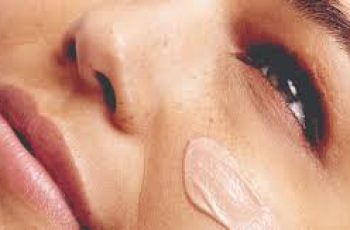
Artemisia Capillaris in Skincare: A Natural Powerhouse for Sensitive and Pigmented Skin
Artemisia capillaris, often called “Wormwood”, has been used in traditional Asian medicine for centuries. Now, it’s making waves in modern skincare for its soothing, brightening, and anti-aging benefits.
It’s not yet as common as retinol or niacinamide, but this herbal extract is quickly gaining popularity—especially in melasma creams, sensitive skin formulas, and products targeting inflammation.
In this article, we’ll explore what Artemisia capillaris is, what it can do for your skin, how safe it is, and what science says about its effectiveness.
What Is Artemisia Capillaris?
Artemisia capillaris is a perennial plant from the Artemisia genus, which includes over 500 different species.
It’s a woody shrub found primarily in China, Korea, and Japan, where it’s been used for centuries as a remedy for liver disease, fevers, inflammation, and skin disorders.
In skincare, Artemisia capillaris extract is used for its anti-inflammatory, antioxidant, moisturizing, and skin-brightening effects.
You might see it listed on product labels as:
Artemisia Capillaris Extract
Artemisia Capillaris Flower Extract
Wormwood Extract
What Makes Artemisia Capillaris Unique?
What sets this extract apart is its diverse profile of bioactive compounds. Each one plays a role in calming, protecting, or improving the skin.
Here’s a breakdown of its most beneficial components:
Flavonoids (like Quercetin, Luteolin)
Powerful antioxidants that protect skin cells from free radical damage and environmental stressors.
Coumarins (like Esculetin)
These compounds inhibit tyrosinase, the enzyme responsible for melanin production. This makes them useful for fading dark spots.
Phenolic Acids (like Caffeic Acid)
Support skin’s defense against irritation and inflammation. Also help reduce redness.
Capillin & Capillene
Natural oils with antimicrobial and anti-inflammatory properties, helpful for acne-prone or inflamed skin.
Polysaccharides
Natural humectants that improve skin hydration and strengthen the skin barrier.
Triterpenoids (like Ursolic Acid)
Help boost collagen production and improve skin elasticity over time.
Fatty Acids (like Linoleic Acid)
Essential for maintaining a healthy skin barrier and reducing trans-epidermal water loss (TEWL).
Skin Benefits of Artemisia Capillaris
Thanks to its rich combination of bioactives, Artemisia capillaris extract can offer a wide range of skincare benefits.
1. Fights Inflammation
Its anti-inflammatory properties can help soothe skin conditions like eczema, psoriasis, and rosacea.
2. Improves Hyperpigmentation
It inhibits tyrosinase and TYRP-1 activity, helping to lighten melasma and sun-induced dark spots.
3. Hydrates Dry Skin
Polysaccharides and fatty acids support moisture retention, making it great for dry or barrier-compromised skin.
4. Calms Sensitive Skin
Artemisia is ideal for skin that’s easily irritated or reactive. It calms redness, stinging, and tightness.
5. Antioxidant Protection
It neutralizes environmental stressors, preventing premature skin aging.
6. Supports Skin Aging Treatments
Compounds like ursolic acid and flavonoids support collagen health and skin elasticity.
Who Should Use Artemisia Capillaris?
Artemisia capillaris may be a good fit for your routine if you experience:
Persistent redness or rosacea
Flaky, dry, or eczema-prone skin
Uneven skin tone or melasma
Acne or post-acne inflammation
Sensitive or reactive skin types
Mild signs of skin aging, like roughness or loss of firmness
If you have a skin type prone to irritation, like Baumann Skin Types 4, 5, 7, or 9, Artemisia may offer relief without causing flare-ups.
Scientific Research on Artemisia Capillaris
A growing number of studies are confirming what traditional medicine has known for centuries.
✦ Melasma and Pigmentation
A 2022 study identified Artemisia capillaris among four essential oils that significantly reduced melanin production in lab-grown skin cells.
A 2016 study found that 4,5-O-dicaffeoylquinic acid, a key compound in A. capillaris, reduced both tyrosinase activity and TYRP-1 expression, important enzymes in melanin production.
These findings support its use in melasma creams and skin brightening serums.
✦ Anti-Aging and Hydration
Other studies show its ability to hydrate the skin, soothe irritation, and potentially stimulate collagen due to the action of triterpenoids and coumarins.
Though more human clinical trials are needed, the early research is promising, especially for gentle brightening and barrier repair.
Is Artemisia Capillaris Safe?
Yes. Artemisia capillaris extract is considered safe for topical use.
The Cosmetic Ingredient Review (CIR) panel has evaluated it and found no significant safety concerns in skincare.
🟢 Clean Beauty Friendly
It meets most clean beauty standards and is not associated with hormone disruption, carcinogenicity, or long-term toxicity.
🟢 Allergen Potential
It has a low risk of allergic reaction, but as with all botanical extracts, patch testing is recommended.
Is Artemisia Capillaris Sustainable?
Artemisia capillaris is easy to grow, requires minimal water, and doesn’t deplete soil—making it a sustainable option for eco-conscious brands.
It has no known negative impact on ecosystems, and organic versions are readily available from reputable sources in Korea, Japan, and China.
Product Types That May Contain Artemisia Capillaris
You can find this ingredient in:
Melasma creams, Sensitive skin serums, Moisturizers for rosacea or eczema, Anti-inflammatory masks, Barrier-repair creams, Calming toners and mists
How to Use Artemisia Capillaris in Your Routine
For best results, apply Artemisia-based products after cleansing and toning, but before heavy occlusives or sunscreens.
Use morning and night for consistent anti-inflammatory benefits.
Combine with ingredients like niacinamide, licorice root, or tranexamic acid for even better pigment control.
Avoid combining with strong acids or retinoids unless your skin can tolerate it.
Artemisia Capillaris vs. Other Brightening Ingredients
How does it compare to other pigment-fighting ingredients?
Ingredient Action Irritation Potential Skin Type Friendly?
Artemisia capillaris Inhibits TYRP-1 & tyrosinase Low Sensitive-friendly
Vitamin C Antioxidant, tyrosinase block Moderate Not for all
Niacinamide Melanin transfer reduction Low Very versatile
Hydroquinone Tyrosinase inhibitor High Rx only, short term
Tranexamic Acid Melanin synthesis modulator Low Good for melasma
Artemisia capillaris is gentler than hydroquinone or vitamin C, making it a great option for long-term use on sensitive skin.
Final Thoughts
Artemisia capillaris is an under-the-radar ingredient that deserves more attention. It’s soothing, brightening, hydrating, and supports healthy skin with a low risk of irritation.
If you’re dealing with melasma, sensitive skin, or just want a gentle alternative to harsh brighteners, Artemisia capillaris could be your next holy grail.
Want to Know if Artemisia Capillaris Is Right for You?
Take our free skin type quiz to find out if your skin could benefit from this plant-powered ingredient. Get personalized product recommendations backed by science.


